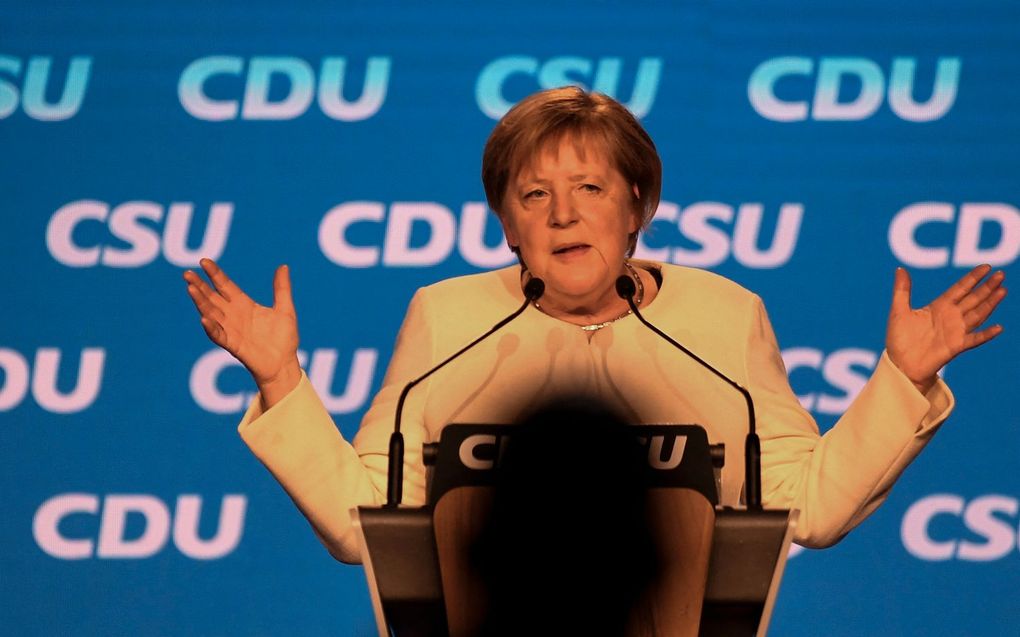Every third German wants a CDU without C

Angela Merkel was a successful CDU leader. Photo AFP, Thomas Kienzle
Central Europe
One in three Germans (35 per cent) favour skipping the C (for Christian) in the party name CDU. Especially older people think it is better to do without. Another third is opposed to deleting the Christian part.
The Protestant news agency Idea researched this, in cooperation with research institute INSA-Consulere. For the survey, 2,157 adults were interviewed between 28 and 31 January.
There are no fundamental differences between East and West Germany. However, people in the former GDR is much less connected to the church than the Western FDR.
Active church members usually oppose the deletion of the C. The opinion is most evident among Catholics (29 per cent for abolition, 40 per cent against), followed by state-church Protestants (30 to 39 per cent) and free-church Christians (35 to 39 per cent).
Among Islamic respondents, 29 per cent are in favour of abolition, 23 per cent against.
Among CDU/CSU voters, only one in five would like to do without the Christian reference in the party name (19 per cent), 59 per cent want to keep it.
Established brand name
The background to the survey is a debate about the “C”, which was triggered by the Mainz history professor Andreas Rödder. In his view, the “C” is a “well-established brand name” which for many party members still represents “a fixed identity marker”. However, in an increasingly de-Christianised society, it could be a barrier for non-Christians and “signal exclusivity, where the Union actually aims at integration”.
CDU and the Bavarian sister party CSU (usually called the Union) was in power during most of the after-war period. Mrs Angela Merkel was the Christian Democratic Chancellor from 2005 until December 2021. But in September last year, the party lost the elections. Election defeat usually leads to reflection about the party identity and policy direction.
Muslim voice
Last Saturday, the Muslim MP for the CDU, Serap Güler, pleaded for keeping the C in the party name. It “does not stand for Christian Club in the sense of: Only Christians are welcome here,” said the politician of Turkish origin in an interview with the Frankfurter Allgemeine Zeitung. Güler, who is of Turkish origin, thinks the CDU can use the Christian identity to distinguish itself from other parties.
Güler said she had never perceived the “C” as a barrier for non-Christians. “The ‘C’ was and is, after all, not exclusive in terms of worldview, but inclusive, because of the universal message it carries.” That was one of the reasons why she, as a person of faith, decided to join the CDU, the 41-year-old said. For her, the “C” also stands for a promise of advancement. She embodies this with her person: “I am a Muslim and come from an immigrant family; my father was a miner.”
Related Articles






